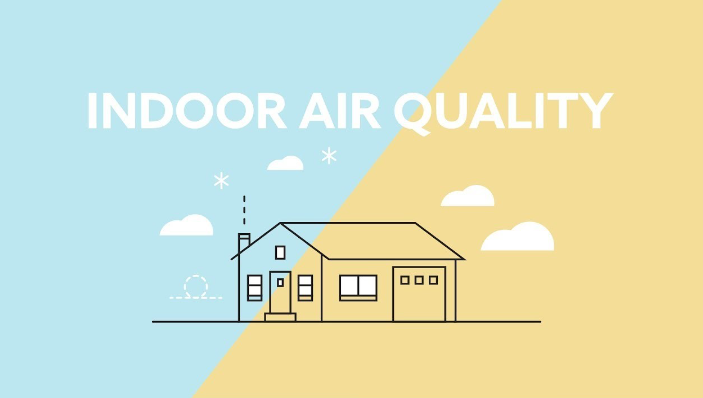Table of Contents
- Why Indoor Air Quality Matters
- Common Indoor Air Pollutants
- Effective Ways to Improve Indoor Air Quality
- Natural Methods to Clean Your Air
- Importance of Regular Maintenance
- Technology for Better Air Quality
- Long-Term Health Benefits
- Final Thoughts
Why Indoor Air Quality Matters
Indoor air quality is crucial for the health and well-being of those who live in your home. Poor air quality can lead to various health problems, spanning from mild allergies to severe respiratory complications. According to the Centers for Disease Control and Prevention, ensuring good air quality can significantly improve your overall health, impacting everything from respiratory functions to mental clarity. Poor air quality doesn’t just affect people with existing health conditions; even those who are generally healthy can suffer from headaches, fatigue, and irritation of the eyes, nose, throat, and lungs.
Common Indoor Air Pollutants
Identifying and understanding the typical indoor air pollutants is the first step in addressing air quality concerns. For example, regular contaminants like dust and mold might necessitate specialized services, such as hydraulic mobile hose repair Charlotte NC, to fix air compression systems and maintain clean airflow. Some prevalent indoor air pollutants include:
- Mold and Mildew: These fungi thrive in damp conditions and can cause allergic reactions and respiratory issues.
- Pet Dander: Tiny flecks of skin shed by cats, dogs, rodents, birds, and other animals can trigger asthma and allergies.
- Dust Mites: Common household pests that feed on dead skin cells, dust mites can exacerbate asthma and cause skin rashes.
- Volatile Organic Compounds (VOCs): These are gases emitted from certain solids or liquids, including paints, cleaning supplies, and furnishings, and can cause various health problems.
- Tobacco Smoke: Contains thousands of substances, many of which are harmful and can cause or exacerbate respiratory issues, heart disease, and cancer.
Knowing what pollutants are in your home allows you to take targeted action to reduce or eliminate these hazards, leading to a safer living environment.
Effective Ways to Improve Indoor Air Quality
Enhancing indoor air quality can be a manageable task. Here are some straightforward tips to help you get started:
- Regularly clean and vacuum your home: Dust and dirt can accumulate quickly, so clean surfaces, carpets, and rugs at least once a week.
- Use air purifiers with HEPA filters: These can capture a high percentage of airborne particles, including dust, pollen, and pet dander.
- Maintain proper ventilation: Open windows when weather permits and use exhaust fans in kitchens and bathrooms to remove stale air and introduce fresh air.
- Avoid using harsh chemicals indoors: Opt for natural cleaning products to reduce the number of harmful VOCs released into the air.
- Control humidity levels: Keeping your home’s humidity between 30% and 50% can help prevent mold and mildew growth.
Implementing these simple measures can effectively enhance the air quality in your home, contributing to a healthier living space.
Natural Methods to Clean Your Air
Opting for natural air purification methods can be both practical and eco-friendly. Natural processes are not only kinder to the environment but also to your health. Here are a few suggestions:
- Houseplants: Species like spider plants, peace lilies, and snake plants can help filter toxins from the air.
- Essential oil diffusers: Oils like tea tree, eucalyptus, and lavender have air-purifying properties and create a pleasant aroma.
- Natural air fresheners: Use baking soda and activated charcoal to absorb odors and pollutants.
These natural methods are excellent additions to more technological solutions, creating a practical, well-rounded approach to air purification.
Importance of Regular Maintenance
Regular upkeep of your air quality devices and HVAC systems is essential. Ensuring filters are changed frequently, and systems are inspected can make a notable difference. You can visit resources like the EPA’s Indoor Air Quality Guidelines for more details. Proper maintenance goes beyond just changing filters. It involves inspecting ducts, checking for leaks, and ensuring the system’s overall integrity. Failure to maintain these systems not only impacts air quality but can also reduce the efficiency and lifespan of the equipment, leading to higher energy costs and more frequent repairs.
Technology for Better Air Quality
Recent technological advancements have introduced innovative solutions to better manage indoor air quality. Smart air purifiers, advanced HVAC systems, and IoT-based air monitoring devices are examples of how technology can help. These solutions provide real-time data and automated responses to changes in air quality. For instance, intelligent air purifiers can detect pollutants and adjust their settings to optimize performance. At the same time, IoT-based devices can alert you to changes in air quality via a smartphone app. These technological advancements enable a more proactive approach to maintaining a healthy indoor environment, making it easier to address issues before they become significant problems.
Long-Term Health Benefits
Investing time and resources into improving indoor air quality can lead to numerous health benefits in the long run. Key advantages include fewer respiratory issues, improved sleep, and a more robust immune system. A healthier living environment contributes to a happier and more productive life. Over time, the benefits extend beyond the immediate health improvements and include reduced healthcare costs, fewer sick days, and an overall higher quality of life. The preventive measures taken today can lead to significant health and financial rewards, making it a worthwhile investment for any household.
Final Thoughts
Ensuring good indoor air quality is essential for a healthier and more comfortable home. Implementing the tips and techniques outlined in this article can significantly improve your quality of life. Regular maintenance and staying informed about new technologies can keep your indoor environment at its best. Taking a comprehensive approach that includes both practical measures and technological solutions ensures you can create and maintain the healthiest possible environment for you and your loved ones.

